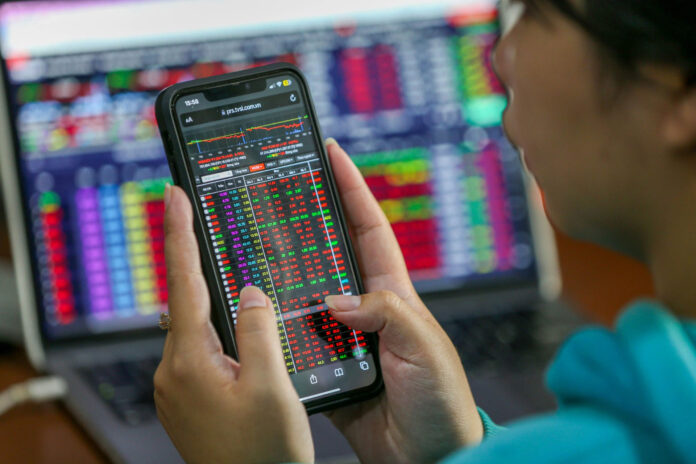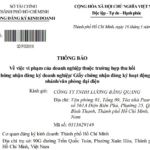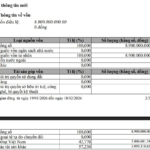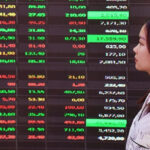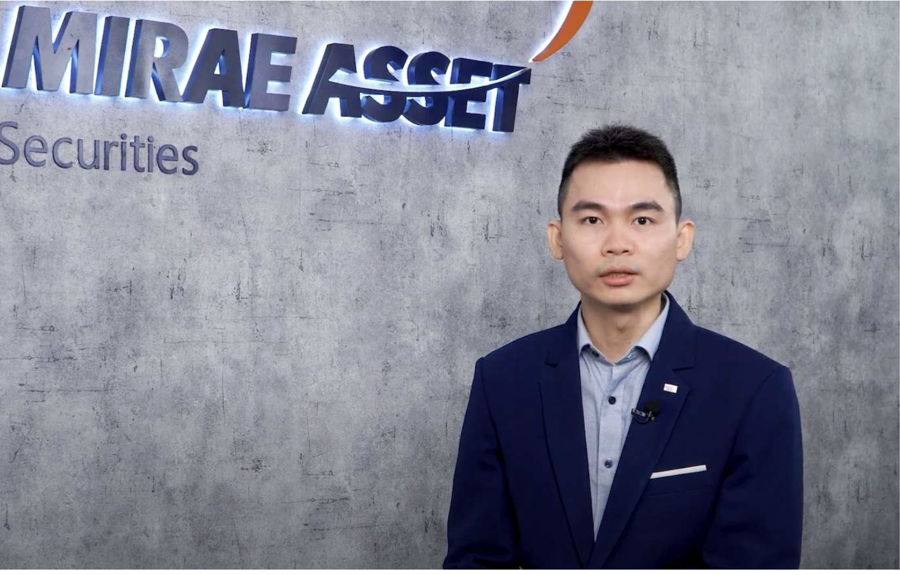Some organizations and individuals collude to open multiple securities accounts to buy and sell crossly, creating fake supply and demand for a few stocks over an extended period. However, only a handful of these cases are criminally prosecuted, while most go undetected or are only subject to administrative penalties, which are not stringent enough.
Shocking Cases
On August 5, the trial of Trinh Van Quyet and his accomplices came to a close, with Mr. Quyet being sentenced to three years in prison for “Manipulating the Securities Market” and 18 years for “Fraudulently Appropriating Properties.”
Prior to this trial, in 2023, the Hanoi People’s Court tried and convicted Do Thanh Nhan, former Chairman of Louis Holdings JSC, and seven accomplices for “Manipulating the Securities Market.” Do Thanh Nhan was sentenced to five years and six months in prison, which was later reduced to four years in early 2024.
Both cases were exposed in 2022 and sent shockwaves through the securities market at the time. Thousands of investors suffered significant losses as the related stocks plummeted. Since then, numerous cases of market manipulation and fake supply and demand creation have been uncovered and penalized.
Recently, the State Securities Commission (SSC) imposed a fine of VND 1.5 billion each on four individuals who used 26 accounts to continuously buy and sell PSH shares of Nam Song Hau Oil, Gas, and Mineral Investment and Trading Joint Stock Company, creating fake supply and demand and manipulating stock prices for an extended period from February 1, 2021, to May 27, 2022. These individuals were Mr. Mai Huu Phuc, Ms. Vo Nhu Thao, Ms. Do Thuy Tien, and Mr. Tran Minh Hoang.
Another individual, Mr. Nguyen Viet Ha, was fined VND 1.5 billion and banned from securities trading for two years by the SSC for manipulating the securities market. Mr. Ha was also prohibited from holding positions in securities companies, fund management companies, branches of securities companies, and foreign fund management companies in Vietnam, as well as investment funds, for a period of two years.
According to the SSC, Mr. Ha opened 23 accounts to continuously buy and sell GKM shares of Khang Minh Group Joint Stock Company, creating fake supply and demand and manipulating GKM stock prices for eight months, from August 2, 2021, to January 28, 2022.
Additionally, from November 2023 to January 2024, the SSC imposed fines of VND 1.5 billion each and a two-year securities trading ban on three individuals: Mr. Nguyen Huu Duc, Mr. Ngo Huynh Minh Uy, and Mr. Luu Thai Hai. Notably, all three individuals were involved in manipulating the FIR shares of First Real Estate Joint Stock Company for several months.
Mr. Nguyen Huu Duc used his own account and 75 accounts of 21 investors to continuously buy and sell, and trade FIR shares. Mr. Luu Thai Hai and Mr. Ngo Huynh Minh Uy used 76 securities accounts to continuously buy and sell, creating fake supply and demand and manipulating FIR stock prices from January 4 to June 17, 2022.
In the same case, the SSC also decided to punish 19 other individuals for lending their securities accounts to others, leading to securities market manipulation.
Are the Penalties Too Lenient?
Commenting on the recent spate of exposed and handled securities market manipulation cases, Mr. Nguyen The Minh, Director of Analysis at Yuanta Vietnam Securities Company, attributed it to insufficient deterrence due to lenient penalties.
According to the Yuanta Vietnam expert, reducing market manipulation requires not only tough measures against listed companies but also investor education by regulatory agencies. Investors’ refusal to buy “junk stocks” or stocks of companies with frequent violations would contribute to a healthier market.

One suggested solution to prevent securities market manipulation is to strengthen legal propaganda for investors. Photo: HOANG TRIEU
“Individual investors often overreact to listed companies’ violations, regardless of magnitude, making them susceptible to psychological manipulation and prone to panic selling based on rumors, harming themselves and the listed companies. Meanwhile, the most serious violation a listed company can commit involves financial statement disclosure, as it can directly impact the securities market and investors,” said Mr. Minh.
From a different perspective, economist Dr. Dinh The Hien attributed the market manipulation to loose management or lack of rigor by competent authorities. In the legal corridor for the securities market, the key issue lies in enforcement.
“For now, we don’t need to think about new solutions. If the SSC, stock exchanges, securities companies, and auditing firms fulfill their roles, the securities market will undoubtedly improve. If auditing firms rigorously audit listed companies’ financial statements and accurately reflect their financial situation, and if the authorities tightly control the rampant account opening, the market’s transparency will significantly enhance,” asserted Mr. Hien.
A finance and securities expert cited the example of foreign countries, where individuals or organizations involved in securities market manipulation face criminal charges, confiscation of illegally obtained assets, and hefty fines as a deterrent. In contrast, similar violations in Vietnam are met with much lighter penalties.
“As the Government aims to develop a healthy securities market and pursue an upgrade, it is crucial to intensify legal propaganda for investors and severely punish violators to bolster domestic and foreign investors’ confidence in the securities market,” the expert suggested.
Assoc. Prof. Dr. Nguyen Huu Huan from the University of Economics Ho Chi Minh City argued that the solutions to prevent securities market manipulation focus on form rather than substance. For instance, the prevalent issue of clandestine stock selling lacks a comprehensive solution. A simple solution is to mandate that company leaders and related individuals open a special account and obtain SSC or Stock Exchange approval before selling.
“We shouldn’t let them sell clandestinely and only impose administrative penalties afterward, as it’s too late and has already harmed other investors. This has been a persistent problem for many years, yet we haven’t addressed it effectively,” Assoc. Prof. Dr. Huan lamented.
Another issue pertains to independent auditing. While numerous violations involving financial statements have surfaced in the securities market, only a handful have resulted in criminal charges. In these cases, the role of auditing firms is nebulous, whereas, in theory, they should be the first to detect and expose violations or issues within companies to caution investors.
“It is imperative to define the roles and responsibilities of auditing firms in detecting and exposing listed companies’ violations to safeguard investors’ interests. Implementing more stringent measures against price manipulation and market disruption will bolster investors’ confidence,” asserted Mr. Huan.
What Constitutes Securities Market Manipulation?
According to Decree 156/2020/ND-CP (stipulating administrative sanctions in the field of securities and the securities market), Clause 2, Article 3, clearly defines securities market manipulation as committing prohibited acts in securities and securities market activities, as specified in Clause 3, Article 12 of the Securities Law, including one, several, or all of the following acts:
– Using one or more of one’s own or others’ trading accounts or colluding to continuously buy and sell securities to create fake supply and demand;
– Placing buy and sell orders for the same type of securities on the same trading day or colluding to trade securities without actual transfer of ownership or ownership transfer only within the group to manipulate stock prices and create fake supply and demand;
– Continuously buying or selling a dominant volume of securities at market opening or closing, influencing the closing or new opening price of that type of security;
– Trading securities by colluding or enticing others to continuously place buy and sell orders, significantly impacting supply and demand and stock prices, thereby manipulating stock prices;
– Expressing opinions directly or indirectly through mass media about a particular security or issuer after conducting transactions and holding a position in that security to influence its price;
– Using various methods, committing prohibited acts, spreading false rumors, or providing misleading information to the public to create fake supply and demand and manipulate stock prices.
Lawyer Truong Van Tuan, Head of Trang Saigon Law Office

